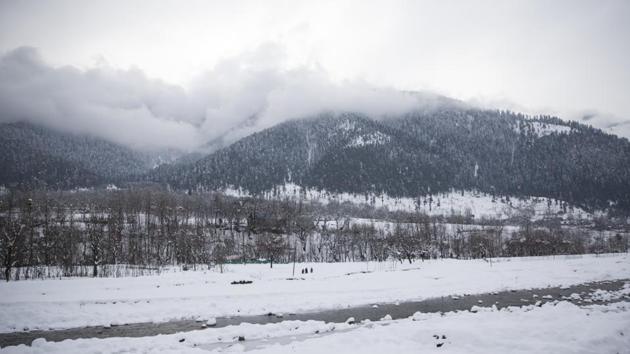UN warns more extreme weather ahead after hottest decade on record
WMO said its research also confirmed data released by the European Union’s climate monitor last week showing that 2019 was the second hottest year on record, after 2016.
The past decade has been the hottest on record, the UN said Wednesday, warning that the higher temperatures were expected to fuel numerous extreme weather events in 2020 and beyond.

The World Meteorological Organization, which based its findings on analysis of leading international datasets, said increases in global temperatures had already had dire consequences, pointing to “retreating ice, record sea levels, increasing ocean heat and acidification, and extreme weather”.
WMO said its research also confirmed data released by the European Union’s climate monitor last week showing that 2019 was the second hottest year on record, after 2016.
“The year 2020 has started out where 2019 left off -- with high-impact weather and climate-related events,” WMO chief Petteri Taalas said in a statement, pointing in particular to the devastating bushfires that have been raging in Australia for months.
The bushfires, unprecedented in their duration and intensity, have claimed 28 lives and highlighted the type of disasters that scientists say the world will increasingly face due to global warming.
The fires have already destroyed more than 2,000 homes and burnt 10 million hectares (100,000 square kilometres) of land -- an area larger than South Korea or Portugal.
“Unfortunately, we expect to see much extreme weather throughout 2020 and the coming decades, fuelled by record levels of heat-trapping greenhouse gases in the atmosphere,” Taalas said.
The UN agency said that average global temperatures during both the past five-year (2015-2019) and 10-year (2010-2019) periods were the highest ever recorded.
“Since the 1980s each decade has been warmer than the previous one,” the UN agency said in a statement, warning that “this trend is expected to continue”.
The United Nations said last year that man-made greenhouse gas emissions needed to tumble 7.6 percent each year to 2030 in order to limit temperature rises to 1.5 Celsius -- the more ambitious cap nations signed up to in the landmark Paris climate deal.
Current pledges to cut emissions put Earth on a path of several degrees warming by the end of the century.
- ‘Not a fluke’ -
Taalas said that since modern records began in 1850, the average global temperature had risen by around 1.1 degrees Celsius, and warned of significant warming in the future.
“On the current path of carbon dioxide emissions, we are heading towards a temperature increase of three to five degrees Celsius by the end of the century,” he warned.
Gavin Schmidt, director of NASA’s Goddard Institute for Space Studies which provided one of the datasets, added that the trend line was unmistakable and could not be attributed to normal climate variability -- a position taken by US President Donald Trump.
“What’s happening is persistent, not a fluke due to some weather phenomenon: we know that the long-term trends are being driven by the increasing levels of greenhouse gases in the atmosphere,” he said.
Data from the US National Oceanic and Atmospheric Administration meanwhile revealed that polar sea ice coverage continued its downward trend in 2019.
Both the Arctic and Antarctic oceans recorded their second-smallest average annual sea-ice coverage during the 1979-2019 period of record, the agency said.
- ‘Broken record’ -
WMO also highlighted a new study published this week in Advances in Atmospheric Sciences with data showing that ocean heat content was at a record high in 2019.
The past five years were also the warmest on record in terms of ocean heat content, that study showed.
Since more than 90 percent of excess heat is stored in the world’s oceans, their heat content is a good way to quantify the rate of global warming, WMO said.
Conservationists said the UN agency’s findings were to be expected.
“It is no surprise that 2019 was the second hottest year on record -- nature has been persistently reminding us that we have to pick up the pace,” said Manuel Pulgar-Vidal, leader of WWF’s global climate and energy practice, calling for dramatic measures to halt the warming trend.
“This is not so much a record as a broken record,” added Chris Rapley, a professor of climate science at University College London.
“The message repeats with grim regularity. Yet the pace and scale of action to address climate change remains muted and far from the need.”
bur-ia/pvh



